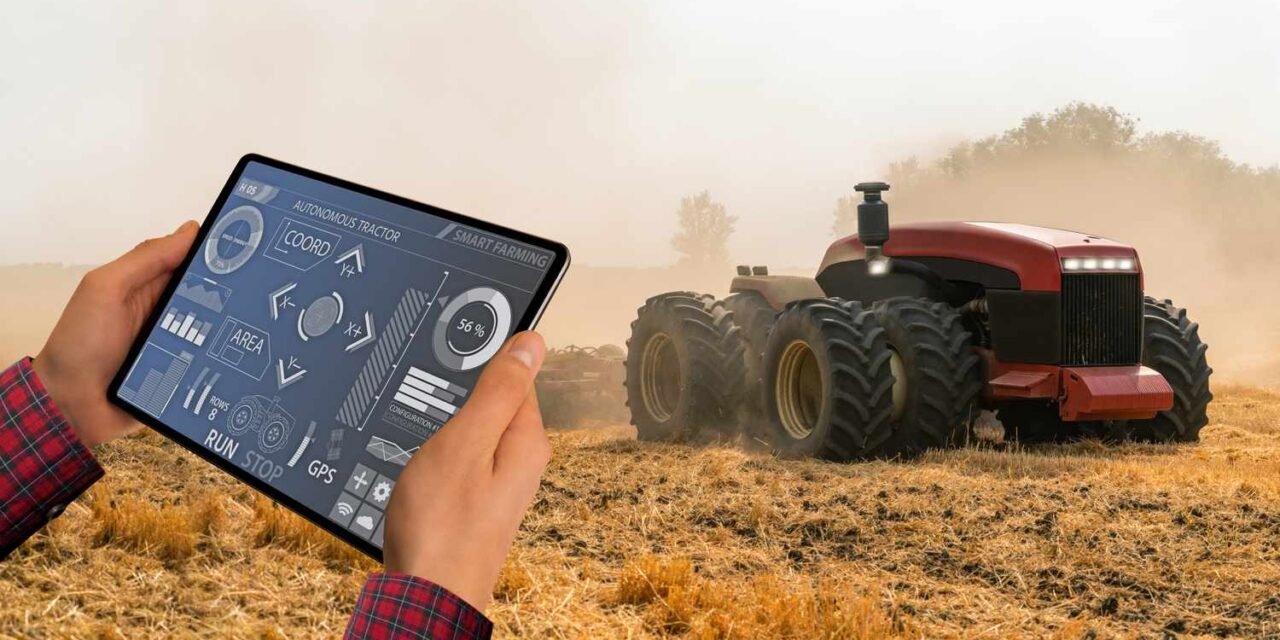The introduction of autonomous tractors has sparked a revolutionary shift in contemporary agriculture, reshaping how farms operate and significantly increasing efficiency, sustainability, and productivity. These self-driving machines, powered by artificial intelligence (AI), GPS, and sensor technologies, are designed to carry out essential tasks such as planting, plowing, harvesting, and fertilizing without the need for human intervention. As a result, they are transforming the agricultural landscape in profound ways.
Addressing Labor Shortages
One of the most notable impacts of autonomous tractors is their ability to address the growing labor shortages in agriculture. With fewer young people entering farming and an aging agricultural workforce, autonomous tractors provide a practical solution by performing critical tasks traditionally done by human laborers. This not only helps mitigate the shortage of skilled workers but also enables farmers to focus on other strategic areas of farm management, improving overall productivity. Autonomous tractors can work longer hours, reducing the pressure on human laborers and enhancing farm output without compromising quality.
Increasing Efficiency and Precision
Autonomous tractors are setting new standards for precision agriculture, a farming approach that uses data-driven technologies to make farming operations more efficient. These machines are equipped with sensors that monitor soil conditions, crop health, and other environmental factors, allowing them to adjust actions in real-time. By utilizing real-time data, autonomous tractors optimize planting patterns, adjust the application of water, fertilizers, and pesticides, and reduce waste. This precision not only boosts crop yields but also ensures better resource management, making farms more efficient and environmentally friendly.
Sustainable Farming Practices
Autonomous tractors are also a key enabler of sustainable farming. By improving the accuracy of tasks such as planting, fertilizing, and irrigation, these machines help reduce the use of water, fertilizers, and pesticides, minimizing the environmental footprint of farming. Moreover, by reducing soil compaction and using lighter machinery, autonomous tractors help preserve soil health, which is critical for long-term agricultural sustainability. The technology behind these tractors allows for more responsible land use, thus supporting the growing demand for environmentally conscious farming practices.
Technological Advancements and Innovations
Recent advancements in autonomous tractor technology are further transforming farming. For example, John Deere’s autonomous tractor can operate independently or be remotely controlled through a smartphone app, enabling farmers to monitor and manage their fields remotely. Additionally, these tractors are equipped with machine learning algorithms that improve their efficiency over time by learning from data and adapting to new farming conditions.
Challenges and Considerations
Despite the numerous benefits, the widespread adoption of autonomous tractors faces certain challenges. Initial costs for these advanced machines are high, which can be a barrier for small-scale farmers. Additionally, while these tractors reduce the need for manual labor, they also raise concerns about job displacement in rural communities. The shift towards automation requires careful consideration of how to balance technological advancement with the social and economic impact on farming communities.









